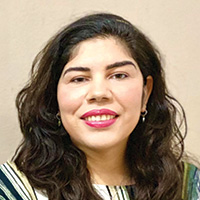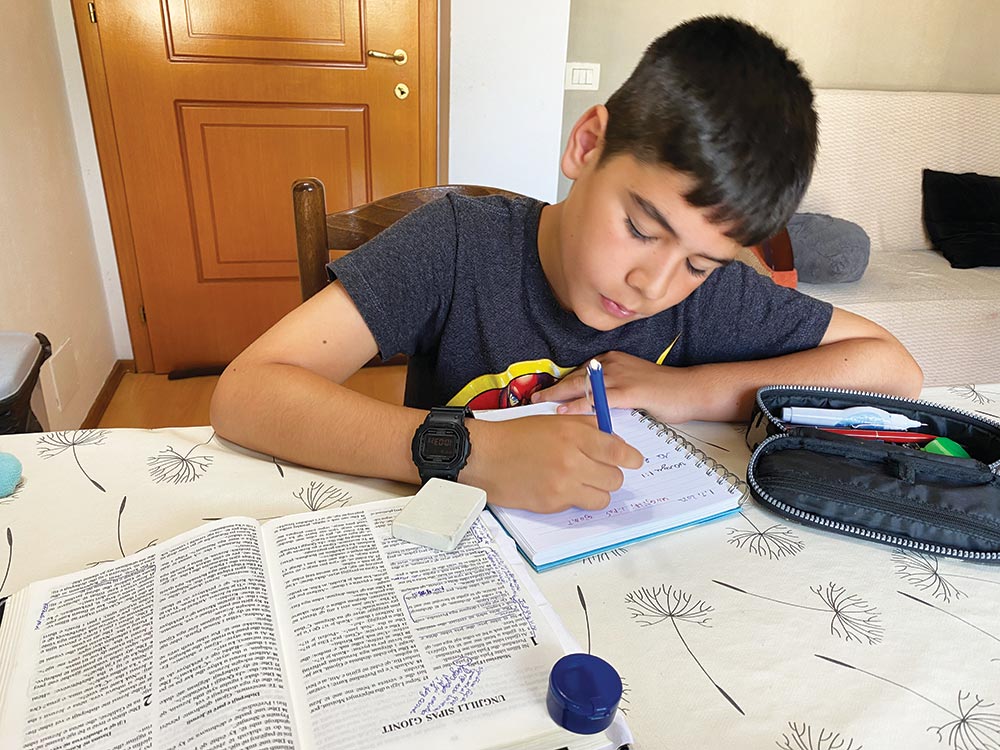Reimagining Our Mission
In Shkodër, Albania, the approach of meeting one-on-one opens doors for sharing the gospel and for multiplication.

Growing in ministry is about experimenting and adapting as you go. We can’t create a formula, because almost everything we do depends on culture and context. It’s through mistakes and successes in the process of ministry that we learn most. We have to be willing to change our approach as we learn from our host context.
I’ve always believed that investing time in sharing with others about how God has transformed your life is the best way to impact their lives. Deep things within people’s hearts can only be addressed when they are brought into the light. Especially within a cultural context of “honor and shame,” people are able to be more open in one-on-one settings in a way they would not have the courage to do in a group setting. One-on-one discipleship provides the opportunity to focus on personal challenges and reach hearts, through God’s word and your prayers for them.
We try to build an appropriate and participatory approach in our cultural context by always remembering to be sensitive to the Holy Spirit and to our host culture. For example, in the Albanian context, inviting someone to have coffee is both appropriate and effective. It can produce good results, opening doors for preaching the gospel. So if each person who is spiritually mature manages to reach one more life in this way, multiplication begins.
The goal is that the one who receives the gospel message matures to the point of sharing that faith with others. This can create a huge change in a community in the long run. Furthermore, one-on-one discipleship allows you to adapt the dialogue according to the spiritual maturity of each person or the situation someone is going through.
We can see positive results from this approach. Sometimes, changes and transitions can have a very negative impact on our lives in the short term. However, if we consider a long-term approach to ministry, these same transitions and changes can be positively powerful and eye-opening!
The goal is that the one who receives the gospel message matures to the point of sharing that faith with others.
It has been two years since we went through a transition on the mission field that directly influenced both our family, and our ministry. This change was forced upon us by the pandemic, and since it happened very quickly, it was not planned out well. Looking back, however, I realize that everything happened because it was time to move forward and overcome some of the challenges in our lives, beginning in our own home.
Just prior to our sudden transition, we had discovered that our son Paulo has the learning disorder dyslexia. “What now?” we thought. We live in a country without any resources in this area. I took it upon myself to learn about dyslexia to try to help him. Paulo gradually reinvented himself and tried to find methods to overcome this obstacle in his life.

With our unexpected ministry transition, he also now had to change schools, make new friends and find a new support network of teachers who understood his difficulties. What a time of adaptation we went through! It required of us an incredible amount of resilience. Through these difficult experiences, I was intentional about discipleship with my son. My goal was to reach his heart and understand his emotions. He often cried, which would provide the opportunity to pray together for the difficult situations he was going through. The Lord was at work and providing means of engaging his emotions and overcoming challenges.
Paulo is now 12 years old. He has a lot of new friends. At his new school, the teachers are much more flexible in helping him. He has a heart to serve God in the church; he helps with the media during church services on Sunday and assists the Sunday school teachers with younger children. His traumatic experiences have been transformed into a testimony!
Our main resource for spreading the gospel is people, but it is the Spirit who is at work in the lives of those we engage with the gospel. All we can do is be clear about our role and purpose in God’s reconciling work in the world. It all begins with knowing God’s salvation, peace and reconciliation in our hearts. It then takes root in our homes and families, and eventually extends to our church, community and network of influence.
We are serving in Shkodër today because of the testimony we saw in the lives of the young Albanian couple who invited us to work here. We saw in them a burning desire to serve people with the unconditional love of Christ. Pastor Gusti and his wife Visa had been in the process of planting the church “Guri i Themelit de Shkodër” for some time when we joined them here. There was still a lot of work to be done to solidify the church’s ministries and become legally registered with the government. We accepted their invitation and together we have worked towards these goals. The legal registration part of the church was completed in less than three months. The Lord is working through the church’s various ministries and that work is beginning to bear fruit.
One of the ways God has been working is that soon after we moved to this city, the church also moved to a larger but much more challenging location, in a Muslim neighborhood. The church building does not look like a traditional church. It’s just a three-story house with a commercial space on the street level. On the first day, we placed a small sign with the name of the church out front. One of our new neighbors noticed the sign and us moving things in. Soon, he came over and asked, “What are you going to do there?” We told him that this building would now serve as a church. He took the opportunity to remind us that we were in a Muslim neighborhood. We asked him, “Are you good or bad Muslims?” He replied, “Good ones, of course!” So we responded that we are also good people and are here to bless his community.
We don’t have ongoing problems with our neighbors regarding the building. That is in part because in our Albanian Muslim cultural context, a church is only considered a church if it is a building designed and constructed for that purpose. From our biblical perspective of course, it’s the community that gathers together in Jesus’ name that makes a church the church.
After their first year in Shkodër, Gusti and Visa had to go through some challenges as they pursued their pastoral calling. Because we had a similar experience, the Lord gave us the opportunity to be part of their support network. We were able to help them in an intentional way.
We are very happy to witness everything that God has done and will continue to do if we do not give up on the journey in the midst of ministry challenges. When Christ lives in people in the midst of the struggles, it can provide hope for others who face similar challenges. More broadly, we are always thinking about how to hold the short-term and long-term perspectives together. This helps us to remember that regardless of our presence, God’s work of multiplication will continue through the native Albanian disciples we are making through our intentional one-on-one relationships.
Solange Tartari works to multiply disciples, leaders, and faith communities with her husband Rafael in Shkodër, Albania, in partnership with the Evangelical Mennonite Alliance of Brazil.
